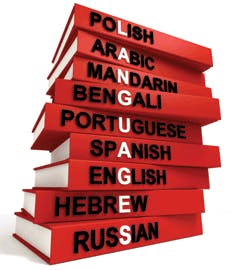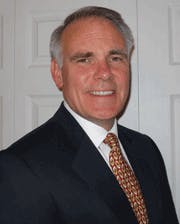Webster's New College Dictionary (a seldom used tool in the age of Wikipedia) defines globalization as, "The act, process, or policy of making something worldwide in scope or application." This concise definition doesn't mention what manufacturers must keep in mind if they want that definition applied to their business. Successful globalization of your brand requires familiarity with the economics, politics, trade practices and cultures of all your target markets.
See Also: Supply Chain Technology & Automation Trends
Globalization isn't a new concept, but trade agreements and enabling technologies are opening world markets to a wider variety of manufacturers. This concept's evolution has always been driven by entrepreneurs recognizing that desirable, scarce goods were more readily available outside their own geography, and then figuring out how to bring those goods home. Once products like silk and spices started flowing between Asia and Europe, globalization was born.
But those brave pioneers of global trade discovered early on what so many of us now struggle to understand: while the profits to be gained from becoming more global are substantial, the challenges of language and culture are significant.
Untying Tongues
A few years ago I had an opportunity to spend a couple of months in Sweden. I had traveled outside the U.S. before but always in controlled environments, where I was guided by others more familiar and comfortable with foreign travel. Lucky for me, most of the population speaks or understand at least some English. The people there were great and if I had to have this experience, Sweden was the perfect place. At one point, one of our salesmen with whom I had become friendly, told me this joke:
"If you speak three languages you are tri-lingual. If you speak two languages you are bi-lingual. If you speak one language, what are you?
… an American."
If you can shelve your nationalistic pride for a minute, it is a good joke and as with all good jokes, not without an element of truth. When I was in school, a foreign language was required for college prep. Unfortunately, I spent a few years learning Latin for a planned career in law. I spent a very brief time taking German, because the teacher was exceptionally attractive and I was, well, seventeen.
Even with these amazing language skills, American colloquialisms that most of us take for granted, can create impediments to understanding. The use of an expression like "the chicken or the egg" implies that you are familiar with the circular argument as in "what came first, the chicken or the egg?" But until you use that expression for the first time in another country and are met by a blank stare, you don't realize how deeply ingrained those expressions have become in our own language.
I now travel frequently to both Mexico and Europe for my job. Business meetings of multi-cultural groups are held primarily in English. I haven't determined if that is because English is the international language of business as I have been told, or merely a concession to the Americans in the group. As time has gone on, that joke has made me acutely aware of the image of American business people in a global environment. My company has operations in 13 countries and I have visited most of them. As a minimum, I have learned "please" and "thank you" in each language and I have tried to resuscitate my German after the misspent efforts of my youth. For more and more business people, learning a foreign language is a necessity and for new grads entering the working world it is quickly becoming the price of entry.
For the rest of us, make an effort, smile and be respectful of the fact that the rest of world is a lot better at the language thing than we are.
You're Not in Kansas Anymore
Operating in another culture requires a healthy respect for cultural differences as well. The American culture has become obsessed with political correctness. We are all now consciously aware of making observations about another person's race, creed, gender or physical appearance with the belief that such things have no business affecting how we see or treat a person. Such awareness has not yet transferred to the rest of the world. Those American conventions that are now so ingrained in all of us simply may not exist in other cultures. Political correctness is different, depending on where you go.
I recently visited a number of plants in Mexico City, each with a statue of Our Lady of Guadalupe on prominent display in the buildings. In the U.S., where separation of church and state is a fundamental tenet, this type of display has become a rarity either at the risk of offending someone or as a potential source of litigation. An American, no matter your religious conviction, cannot help but take notice.
In the Mexican culture, where Catholicism dominates their history and culture, such a display is considered totally acceptable. Religion is one of those politically correct topics that is not normally evident in American business. While we are all comfortable with religion on an individual basis, your personal beliefs are private and not normally on open display at work.
Do the Right Thing
Americans operating in Latin American cultures also apply an American sense of business ethics. Most American companies have a code of conduct that demands always conducting business with openness and honesty and without allowing personal relationships to affect decisions. In the U.S., doing business or purchasing goods from a relative or personal friend is considered off limits or is at least heavily governed by disclosures.
In other countries, where family relationships are considered stronger, these types of relationships are expected. That is absolutely not to suggest that American companies can or should compromise on these types of issues. It is more a caution to not harshly judge non-American companies that do so as being corrupt.
The bottom line here is not to judge other cultures by our metrics. Americans naturally define how and what they think as "normal" and non-adherence to this norm as wrong. Globalization forces us to open our awareness to the norms of other cultures and avoid rushing to judgment.
Know and Respect Local Laws
Americans enjoy (I use that term loosely) a highly developed legal system. While we bemoan our highly litigious society, we also have a highly developed court system with a free press that thrives on exposing inadequacies in that system. We tend to assume that the rest of the world operates in much the same way and expect to operate in other environments with the same rules.
The legal systems in the rest of world have evolved over the last 50 years, but never assume anything. I knew a very experienced general manager who terminated someone in Mexico without observing Mexico's very well defined rules concerning severance. It is not that the rules are complex; they are actually very simple and well defined. It was more that the manager in his arrogance or haste never did his homework. Litigation followed and what could have been done effectively, at a reasonable cost, instead took more than five years to resolve in court.
Given the aforementioned example, which was not complex, imagine more complex issues such as patent infringement or what constitutes intellectual property.
Everyone in manufacturing has their horror stories about early sourcing attempts from China. In a former life, I had a key vendor embroiled in litigation with a Chinese company from whom they were sourcing small assemblies. It seems the Chinese company was manufacturing and selling these assemblies to my vendor's aftermarket without my vendor's knowledge or permission. These assemblies were even embossed with my vendor's brand and trademark. Enforcing their rights within the U.S. was easy, but in the rest of the world, more costly and difficult.
Lessons Learned from Afar
In the last 40 years or so, manufacturing's geographic territory has grown much bigger. Our predecessors usually tried to have their vendors within a 500-mile radius. If you have survived you have sourced product or put operations in China or Mexico. Perhaps you have had engineering or machine shop work done in India.
In an age that may be defined by globalization, American businesses were sought out for our technologies and our markets and were not under pressure to bend to the rest of the business world. Going forward we still own distinct advantages in these same regions but we need to continue to grow our understanding of other geographies and cultures if we are to maintain our place.







